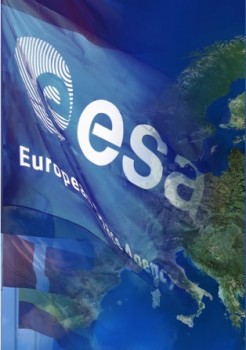
ESA has existed since 1975 and has a very impressive track record. Space is seen by the public as a force for the good, as being a vital part of our infrastructure while also having the power to fascinate, inspire and motivate people.
These facts are widely recognised by all the key players both within Europe and worldwide.
On a political level, space was seen as being capable of providing not only crucial elements of our infrastructure but also a positive image in general. As a convinced European, I am very pleased about that. As the number of actors involved in space steadily increases, however, and a new form of space race gets under way, it is important that we do nothing to endanger the heritage of more than 50 successful years of Europe in space.
Some years ago, the European Commission, having undertaken a thoroughgoing strategy-finding process, decided to position itself by defining two flagship programmes: Galileo with EGNOS; and Copernicus. A Framework Agreement between EU and ESA was signed back in 2004, according to which the Commission would be able to draw on ESA’s competence, and in which the principles of their future cooperation were set forth.
Galileo and EGNOS are now a reality and are proving extremely successful, thus serving as proof not only of Europe’s capabilities but also of the strong will for global cooperation and of the very fruitful interaction that can be achieved between two different European entities: ESA and the European Commission.
Copernicus, the fruit of precursor developments by ESA and clear arrangements established between the European Commission and ESA, is now simply the best Earth observation system in the world today. Equally, Galileo and EGNOS now represent the “best in class” for satellite navigation systems.
If we are to continue to enjoy the fruits of this success, it is of the utmost importance that we stick with a formula that has so amply proved its worth: it is the intensive cooperation between the EU, EUMETSAT, GSA and ESA that guarantees that we remain focused on our jointly defined goals. The great success of Galileo, EGNOS and Copernicus is based on a clear set-up: high-level requirements and financial support provided by the European Commission/EUMETSAT combined with end-to-end management and implementation through the European Space Agency, drawing on its 50 years of experience conducting challenging space missions.
Therefore, my simple plea if we wish to continue to secure the success of flagship programmes is to proceed as in recent years: with a focus on teamwork, clear terms of reference for the various actors, combining efficiency with knowledge, and not looking to secure any institutional or individual advantage. The European taxpayer and all Europe’s citizens deserve no less than that their publicly-financed organisations conduct themselves according to those principles.
The announcement of the proposed numbers for the EU’s upcoming Multiannual Financial Framework (MFF) provides some reassurance for me in that regard as it clearly shows the European Commission wishing to continue its fruitful cooperation with ESA, with funding set at levels sufficient to cover the flagship programmes Galileo/EGNOS and Copernicus. I also understand from what has been announced that the role of ESA is set to continue as before, especially in the implementation of EU programmes, with no duplication of actions or institutions being planned.
ESA, for its part, stands ready to contribute with all its capabilities and competence for the sake of Europe.

Discussion: no comments